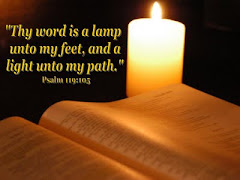
You've probably already seen this story from a number of secular newsites, but this version, supplied by EWTN, offers a few more details:
NAZARETH, DEC. 21, 2009 (Zenit.org).- Excavations in Nazareth have uncovered an unprecedented discovery: the remains of a family home from Jesus' time.
A press release from the Israel Antiquities Authority announced today that this finding "is of the utmost importance since it reveals for the very first time a house from the Jewish village of Nazareth and thereby sheds light on the way of life at the time of Jesus."
This discovery is giving archaeologists new information about the way of life in Nazareth during Jesus' time.
Yardenna Alexandre, the authority's excavation director, explained: "The building that we found is small and modest and it is most likely typical of the dwellings in Nazareth in that period.
"From the few written sources that there are, we know that in the first century Nazareth was a small Jewish village, located inside a valley. Until now a number of tombs from the time of Jesus were found in Nazareth; however, no settlement remains have been discovered that are attributed to this period."
The discovery was made during excavations linked to the construction of the International Marian Center of Nazareth, which is being carried out by the Association Mary of Nazareth.
The center is being built next to the Church of the Annunciation, which tradition holds as the site where Mary, the mother of Jesus, lived.
The press release reported that the ancient building that was uncovered had two rooms and a courtyard with a rock-hewn cistern for collecting rainwater.
A few artifacts were found, including pottery fragments from the first and second centuries. As well, some pieces of chalk vessels were discovered, which were used by Jews because the "vessels were not susceptible to becoming ritually unclean," the authority explained.
Another pit with a hidden entrance was found, which was "probably hewn as part of the preparations by the Jews to protect themselves during the Great Revolt against the Romans in 67," Alexandre noted.
The Association Mary of Nazareth announced its plans to conserve the archeological remains inside its new center.
The center, which is scheduled to be completed next year, will be run by the Chemin Neuf Community, a Catholic organization with an ecumenical mission that is active in 25 countries. It aims to offer multimedia educational tools to teach about Nazareth and its role in the Christian faith.
The reason this story is significant is that there is a pile if literature out there (some as recently as 2008, I've found) that claims there is no evidence that the town of Nazareth ever existed, at least until the fourth century AD at least, and that biblical writers simply invented the town as part of a "Jesus Myth."
Once again, however, archaeology substantiates the biblical record. I say "once again" because many liberal scholars have been of the opinion that there are innumerable instances that such-and-such a person or such-and-such a place mentioned in the Scriptures has no hard evidence for existing outside the Scriptures. The inference is that the Bible, as a historical source, is largely unreliable (there are some parts of the Bible, of course--primarily found in the Old Testament-- that are read like history when they shouldn't be, but that does not apply to or detract from the truly historical accounts found there, especially in the New Testament).
Time and again, however, archaeologists as well as historians studying newly discovered or translated early manuscripts have proven the authenticity and accuracy of the Biblical historical record. This has been the case in finding contemporary evidence of
Pontius Pilate, the "
House of David," and the ossuary (burial box) of the
High Priest Caiphas. More discoveries like this are being made all the time.
Next time your college professor or know-it-all co-worker at the watercooler smirks and tries to tell you the Bible is basically all made-up stories and that there is no scholarly evidence for the existence of a certain person, place or event found in the Bible, just smile and say, "You mean they haven't found it yet."
 An extra Scripture study for Friday, January 1, 2010 and the Solemnity of Mary, the Mother of God (a holy day of obligation for Catholics). You can find it on my webpage, located here.
An extra Scripture study for Friday, January 1, 2010 and the Solemnity of Mary, the Mother of God (a holy day of obligation for Catholics). You can find it on my webpage, located here.
















 Here are the readings for this coming Sunday's Scripture readings from the
Here are the readings for this coming Sunday's Scripture readings from the 





